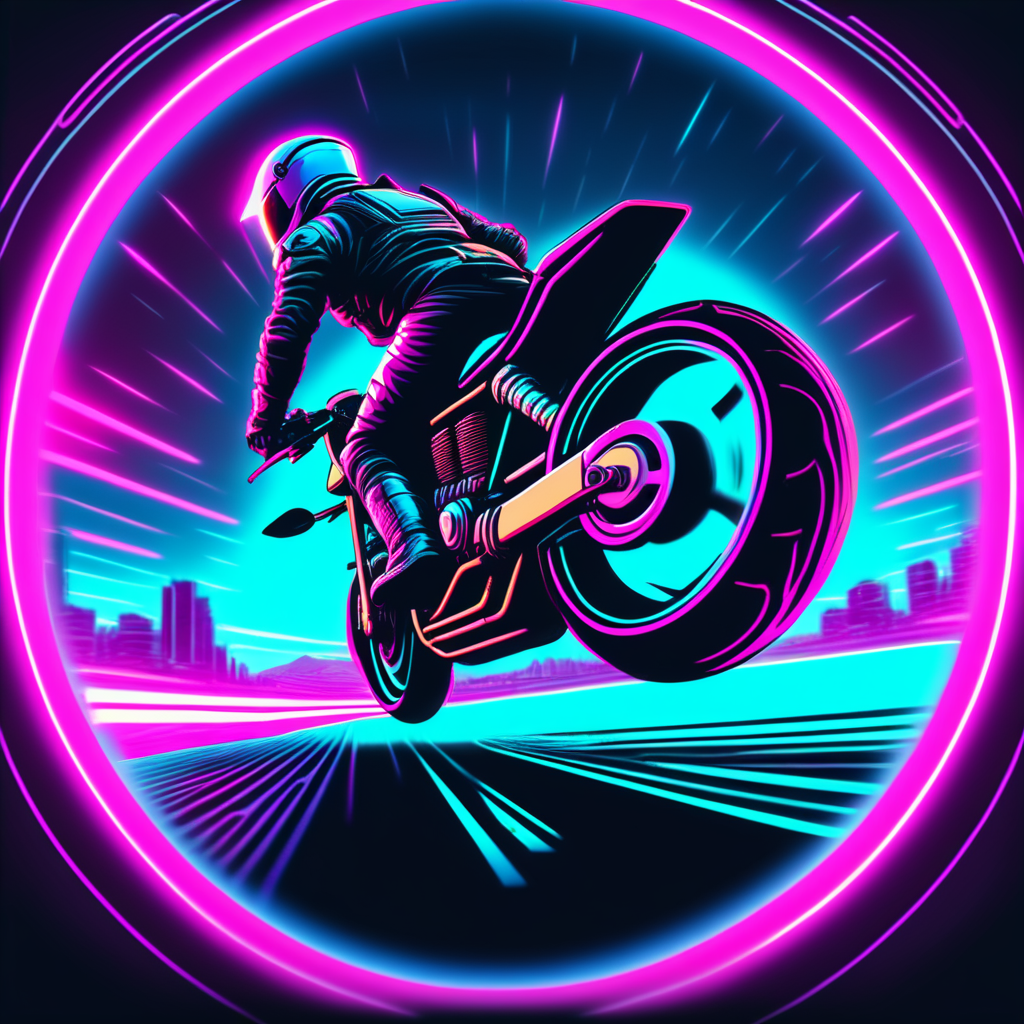You hear a lot about close calls and danger when looking at motorcycles from the outside. I’m looking at motorcycles now for the first time, and my wife is concerned. As I just want a chill cruiser, I thought maybe some perspective from actual riders might help with the perceived danger. What do you guys think? Do you have any stories or opinions? Anyone experience any accidents that armor/air vests came in clutch? I appreciate any insight you guys may have!
Humans are wired to notice/recall the rare and the lurid. It’s how we survived way-back-when. So we give disproportionate attention to crashes. For each crash-and every one of them is a terrible thing-you’ve got to figure close to a billion rides completed safely just that day. Motos are everywhere, and the most common individual transport in a lot of places. We don’t have an organ in our brains for statistical understanding, this is why we just naturally come to believe motorcycling is more dangerous than it is.
Having said all that, it IS dangerous. Dress for the slide, not the ride. Because “debridement” (DO NOT look at the pictures) is just about the most painful procedure a human can endure AND it’s success isn’t great because of post-procedure infection. Am I sweating in my suit, helmet, boots, and gloves? Oh yeah. Because road rash SUCKS.
So I’ve been riding on the street for 12 years now and racing heavily for 2 and in my biased opinion it’s a fantastic way to experience the world.
However if you get on a motorcycke you must accept that at some point you will become very intimate with the asphalt. Now the damage that comes from that is something to be mitigated, as many have said all the gear all the time. And it’s important that you get GOOD gear, cheaping out on a helmet is not smart. If I didn’t have the helmets I’ve had I guarantee I would still be here.
I personally never go without a helmet (living is cool) Gloves (hand injuries are the worst)
Riding shoes (the stats on foot Injuries are out there and proper equipment has an insane effect on outcome)
Spine protector (because walking is cool)
Now if I’m being honest I occasionally slip out on a bike in helmet + gloves. This is dumb and I’ve seen my own bones more than once so do as I say not as I do I suppose.
Some important tips are
Stay away from cars in general, if you have to speed up a bit or slow down a bit it doesn’t matter. You’re not gonna win against a car.
Get a bike you are comfortable on and is safe to start learning on. 1000cc sports bikes are obviously not the best first choice, but neither are large heavy cruisers with a ton of rake that get out braked by city busses.
Absolutely no alcohol, a huge percentage of motorcycle fatalities involve some level of intoxication.
Now to put it more in perspective, in my 12 years most of my bad wrecks have been on the street. Most involved little gear beyond a helmet and gloves. Several resulted in broken bits
However I still own a motocycle and I still ride as often as I can. I have probably 8-10 friends who still ride consistently, and I by far have the highest rate of accidents. (I am dumb don’t be like me).
It’s honestly one of the most enjoyable things I do
It’s visceral
It’s freeing
It’s liberating
I rode full time for 5+ years in Los Angeles. 45min commute 5 days a week. I loved it, except for rain days.
- All the gear, all the time.
- Assume everyone is out to kill you.
- If you have young kids, find a different hobby.
- If you have dependents, look into life insurance.
Motorcycles are more dangerous. It’s just a fact. But also, every step you take in life is a risk assessment. Mitigate your risks and decide if the risk/reward trade off is acceptable to you.
If you do decide to ride, take a training course first.
- Assume everyone is out to kill you.
This is the main reason why this is an extremely dangerous hobby. All the close calls - at least most of them - would be related to someone else is out there to kill you.
However it’s also fun on that same level. No thrills without spills.
Is motorcycling inherently more dangerous than driving? Yes. Can much of that danger be mitigated with education, technique, and awareness? Also yes. The single best use of your time in learning to ride would be taking an MSF course; you can learn most of the techniques they teach on your own in a parking lot, but the instruction in mindset and awareness is entirely worth it. I’ve been riding for 12 years and the lessons taught in my initial class still pop into my mind every time I get on a bike. Hyper-awareness of other drivers and road conditions is the best thing you can learn; I’ve been in three accidents in my life, two of which were caused by drivers pulling out in front of me, the third due to sand on the road surface that was invisible until I was sliding through it. In each case, proper gear and a full-face helmet saved me from major injuries.
Riders get hurt on chill bikes too. I have a lot of experience and been down a couple of times. You can control a lot of risk by making good go/no-go decisions. Alcohol in me or drinking holidays, bad weather or at night, unfamiliar area, unfamiliar bike, passenger on the back, fatigue, known problem area, emotional state. There are a few more and past one or two should stack up to an automatic “no go”.
I’ve been riding for 3 years. About 3 months in, I grabbed my front brake after the car in front of me slammed on theirs. I went down and broke two bones in my foot. If I hadn’t been wearing all the gear, things would’ve been much worse. If I had more experience, I probably wouldn’t have crashed at all.
Start by taking the MSF beginner; it’ll get you on the right path in terms of skills and good habits to learn. Don’t stop there, though…take the intermediate and advanced courses too. In some areas, the classes are subsidized since they go a long way to reduce meat crayons. However, don’t think that just because you took a class or two that you’re suddenly invincible.
Wear all the gear all the time. Even when its hot. Even when its a short ride. All. The. Time.
Practice on every ride. Do some slow, sharp turns. Do some emergency stops…at the speeds you ride, not just at 25. Once a week hit a parking lot and spend time doing weaves and swerves and turns. Replicate the exercises you did in the courses you took or the books you’ve read.
Watch tons of videos: Dan Dan the Fireman, MotoJitsu, Fortnine. Pick a few faves and watch em all the time. Read some books: Proficient Motorcycling by David Hough, Total Control by Lee Parks, Sport Riding Techniques by Nick Ienatsch. Watch every rider you see: pick out the things they’re doing well and the things they’re not doing so well, and apply what you see to your riding. Immerse yourself.
Lastly, recognize that almost every motorcycle accident is due to rider error. If anything bad does befall you, its probably your fault. So stay humble and work on your skills and never let your guard down.
Wow, thank you for all the recommendations! I’ll check them out, and I plan on atgatt, it seems crazy to me to open yourself up to the risk when not wearing gear.
If you don’t mind sharing, what could you have done differently to avoid going down?
It is crazy, but you still see cats out there on liter bikes in visors and flip flops. Totally nuts.
My problem was a fully reactionary sudden application of the front brake when I heard the squeal ahead of me. In a car, no prob. On a bike, bad idea. Locked the front tire and it was game over. Instead, I should have either progressively applied brake or just had an escape route in mind. Both are techniques that every course or vid or book will tell you, but its not until you build up that muscle memory that you’ll for sure properly apply the right technique at the right time.
Good luck and ride safe!
Most motorcycle crashes happen at low speed, then inexperienced riders, then after winter, or something like that. So, ride year round, a lot and always fast (don’t).
Fortnine has a good video about it with some statistics, it kinda boils down to always wear all the gear, like others here have said, and ease into it after a break. Whether it’s a week or 6 months, a day you haven’t ridden, is a day you’ve lost feeling for YOUR bike. (that last sentence is my addition)
I ride a lot, have for years, ride like a hooligan sometimes and have laid down my bike 3 times, all below 30km/h.
First, take a class on riding. The Motorcycle Safety Foundation (MSF) and many Harley dealers offer them. An advantage is that passing the class will give you the endorsement on your DL, which you need to legally ride.
Next, start small. Getting used to a smaller bike will help you get a feel for how to deal with the nuances of controlling a bike and how to deal with traffic. As others have said, get the right gear and use it. Even if your state doesn’t have a helmet law, wear one.
When you’re ready to move up, you can easily sell the smaller bike and get the one you want.
And when you’re out on the road, assume nobody can see you. Be vigilant and always look for a way out of a situation.
Seconded about the MSF course. I’m my opinion, if you can’t be disciplined enough to take it, study it, and pass it with high scores, then you probably shouldn’t be riding at all✌️
I rode for forty years in US, UK, EU. Sport bikes and tourers. But I quit because too many car and truck drivers are paying too much attention to their phones while driving.
Definitely don’t skimp on gear, or screw around in the rain. I’ve had half a dozen accidents over the years and no major injuries thankfully due to always wearing my gear. The majority of those accidents were when it was wet, or rainy, or misty out.
Always give yourself a way out, and expect people to do the dumbest thing they can.
I think in a lot of ways, the answer to the question requires honest self reflection. It’s exceptionally easy to tell ourselves we’ll be responsible rider, always wear the gear, ride defensively. It’s another thing to actually do those things while on the bike.
Motorcycles will always be more dangerous than driving, but it’s reasonably on par with other risky hobbies with the right mindset and self control.
The dangerous part is that small and minor mistakes can have huge consequences, they are not proportional. But there are many ways to mitigate the risk and I think it all starts with attention to detail and all the other good suggestions made in this thread.
I have a Helite air jacket that I bought after being in an accident last year that I’m fairly confident would have prevented the injuries that landed me in the hospital if I would have had it at the time. I’m now in process of upgrading to a bike with ABS brakes
Those airbag vests really add quite a bit of protection. I’ve seen a case where a guy crashed into a car (driver on phone made an illegal maneuver), totaling both his bike and the car he hit. He survived without major injuries (basically only bruises and some pulled muscles). According to him (and the paramedics) the consequences would’ve been lot more severe if he hadn’t been wearing it.
Statistically, it is more risk than a car. But like any risk, you can mitigate parts of it. As mentioned, accidents have patterns. Learn how to navigate intersections, how to identify and prepare for potential right-of-way violations, and how to reduce your speed during a corner. Take at least a basic rider course. Understand your limits. Over confidence is extremely dangerous, particularly for new riders. Never mix bikes and intoxicants.
This sounds like a lot, but its really a few hours of work and taking it easy while you learn.






